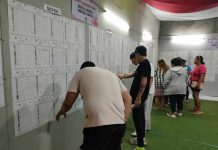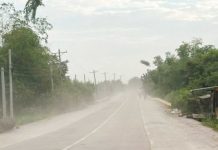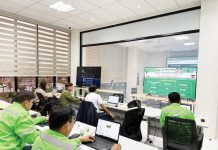[av_one_full first min_height=” vertical_alignment=” space=” custom_margin=” margin=’0px’ padding=’0px’ border=” border_color=” radius=’0px’ background_color=” src=” background_position=’top left’ background_repeat=’no-repeat’ animation=”]
[av_heading heading=’URBAN FARMER ‘ tag=’h3′ style=’blockquote modern-quote’ size=” subheading_active=’subheading_below’ subheading_size=’15’ padding=’10’ color=” custom_font=”]
BY JULIO P. YAP JR.
[/av_heading]
[av_textblock size=” font_color=” color=”]
Enrolment in agri-aqua related courses should increase
THE Students Teachers Agri-Aqua Ambassadors for Innovation and Livelihood (STAIL) program was initiated to boost the interest for agri-aqua related courses among high school students.
The program aims to address the decreasing number of students enrolled in agri-aqua related courses.
The initiative came out following the alliance of different sectors like the Philippine Council for Agriculture, Aquatic and Natural Resources Research and Development of the Department of Science and Technology (PCAARRD-DOST) and the academe.
The downward trend in enrolment in the said field is shown in a comprehensive study on trends, prospects and policy directions in higher education in agriculture, which was published in 2013 by the Philippine Institute for Development Studies and PCAARRD.
PCAARRD sees its partnership with the academe as a tool in providing the much needed impetus to achieve the ideal research and development workforce for the said sector.
As a result of this need, the program aims to develop a science and technology culture among public high schools initially in the province of Laguna, and later on in the whole of CALABARZON Region.
The effort is expected to be replicated by the Council’s regional consortia once the program is fully operational.
Dr. Danilo C. Cardenas, Deputy Executive Director for Administration and Resource Management and Support Services of PCAARRD, explained the importance of addressing the decline in agri-aqua related courses in relation to the increasing demand for food and other farm products in the country.
Cardenas likewise mentioned the students’ poor performance in Science, English, and Math and how the Council could possibly be of help along this line through consultation with the academic sector, particularly in the secondary level.
Dr. Ma. Victoria O. Espaldon, a Professor from the School of Environmental Science and Management, University of the Philippines Los Baños, on the other hand, explained the role of the agriculture, forestry and fisheries sector in generating employment for about a third of the country’s labor force.
To revitalize the sector, Espaldon noted the need for investment in human capital, particularly through the provision of quality basic education, competitive technical vocational skills, training, and relevant and responsive higher education.
Jeselle S. Laranas of the Institution Development Division, PCAARRD, explained that a developing country like the Philippines requires 380 researchers, scientists and engineers permillion population.
The ratio in the Philippines, however, is determined at 270 per million population at the present.
Aside from the PCAARRD scholarship program, the high school students will be briefed on the regional and national invention contest and the available website of the Smarter Approaches to Reinvigorate Agriculture as an Industry in the Philippines (SARAI).
SARAI, a DOST-PCAARRD funded project, addresses the negative effects of climate change.
It aims to provide a decision support system in the agricultural sector by using modern tools and techniques.
Some of the technologies developed include the SARAI knowledge portal, the Smarter Pest Identification Technology (SPId Tech), and Crop suitability maps.
Under the program, the concerned students will be also introduced to the basic principles of intellectual properties. (jaypeeyap@ymail.com/PN)
[/av_textblock]
[/av_one_full]







